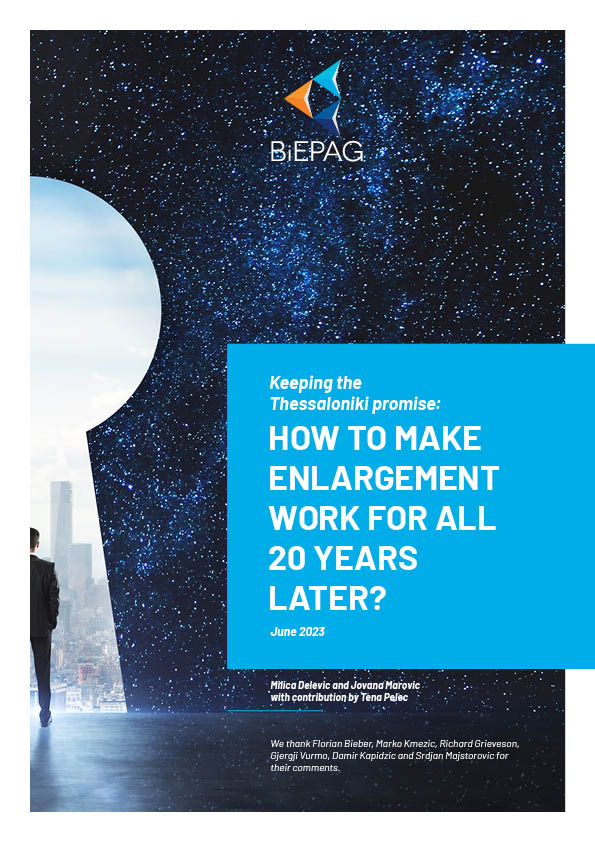

The future of the Western Balkans is within the European Union” – thus reads the commitment the EU made to the European future of the Western Balkans two decades ago. These words were first included in the Thessaloniki declaration in June 2003, yet while the EU has never withdrawn this promise to the region, only Croatia has since become a member. At present, no other country is close to membership: four are currently engaged in negotiations, one has (conditional) candidate status, and one has recently submitted a request for membership.
Compared to the high hopes of 2003, this situation is deeply disappointing. However, Russia’s full-scale invasion of Ukraine has changed the geopolitical situation in Europe and globally. All of a sudden, after years during which the goal of European Union membership was referred to as “European perspective” so as to appear less definitive and less threatening to citizens of EU member states, the number of candidates and potential candidates to join the organisation rose from seven to ten. |
The enlargement process has not only been revived but has also gained a sense of renewed purpose and urgency. It is now crucial to make sure the process delivers for all countries involved – for those in the Western Balkans just as much as for the new candidates in Eastern Europe.